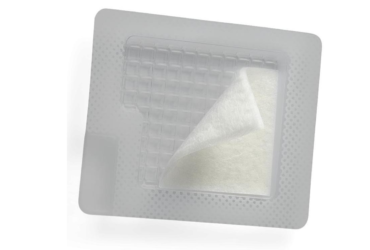
The idea that nutrition plays a critical role in wound healing has long been of considerable interest to surgeons. It was recognized that following a trauma, patients require a high energy and nutrient intake for optimal wound healing. While it is often assumed that acute and chronic wounds have similar nutritional needs, the two wound types are physiologically different.
Importance Of Nutrition For Management Of Chronic Wounds
Patients with chronic wounds usually are old and have coexisting comorbidities which can influence their metabolic demand. Malnutrition is widespread amongst the geriatric population with about 65 to 80% of patients affected in nursing homes and hospitals. Malnutrition and nutritional deficiencies can significantly impact the prognosis. Therefore, podiatrists and wound care specialists should be aware of evidence-based nutritional interventions that can help in the recovery of chronic wounds.
Nutrition Screening And Assessment
All patients with chronic wounds should be screened for nutritional disorders. Nutrition screening helps wound care specialists to recognize malnutrition in patients which might be affecting wound healing outcomes. Any member of the healthcare team can carry out screening using a validated screening tool. A registered dietitian can then use the information to determine if the patient requires any specific nutritional interventions. Some nutritional screening tools that might be used include the Malnutrition Universal Screening Tool (MUST), Mini-Nutritional Assessment (MNA), and the Nutrition Risk Screening 2002.
After the initial nutritional screening, a registered dietitian should carry out a comprehensive nutritional assessment for all patients with malnutrition, pressure ulcers, and other chronic wounds. This involves obtaining information related to the patient’s food history, medical history, lab, and biochemical investigations, and anthropometric measurements. The physical examination involves the identification of nutrition-related physical signs. Following nutritional assessment, the dietician might recommend specific nutritional interventions to meet the metabolic demands of the patient.
Nutritional Recommendations For Patients With Chronic Wounds
Adequate nutritional intake forms a cornerstone of treatment in modern wound care. The European Pressure Ulcer Advisory Panel (EPUAP) in collaboration with National Pressure Injury Advisory Panel (NPIAP) has developed clinical nutritional guidelines for the management of patients with pressure ulcers. The recommendations for daily micro and macronutrients from the guidelines are described below:
Water Intake
Patients should be kept well hydrated as dehydration can impair wound healing. Fluid intake and output should be monitored In hospital settings. Patients with diarrhea, draining wounds, and fever require more fluid intake. While there is no specific formula to calculate the daily fluid requirements of individual patients, the general recommendation is 1 ml fluid/kcal consumed. Wound care specialists and podiatrists should also monitor the patients for early signs of dehydration.
Protein Intake
Patients with chronic wounds and pressure ulcers have a high requirement for proteins. Research has demonstrated that patients receiving higher levels of protein show greater improvement in wound healing. Proteins play a critical role in wound healing. Proteins are composed of amino acids which are considered the “building blocks” of the body. Arginine, a type of amino acid, is involved in the synthesis of collagen. Therefore, healthcare professionals should ensure that patients are receiving adequate levels of protein. The recommended amount of daily protein intake for adults is 0.8 g/kg of body weight. However, a higher intake might be recommended for patients with malnutrition and pressure ulcers.
Vitamins And Minerals
Vitamin C is an essential precursor for the synthesis of collagen. It also helps in improving the tensile strength of the wound. The deficiency of vitamin C has been linked with poor wound healing, fragile skin, and increased risk of bleeding. Due to the lack of consistent results obtained from research studying the efficacy of vitamin C supplements in wound healing, the 2019 Clinical Practice Guidelines have not included vitamin C in their recommendations. However, dietitians should ensure that patients receive vitamin C at recommended dietary allowance (RDA) levels.
Zinc is another important mineral that might have a role in wound healing. It is postulated that zinc might have a role in protein metabolism. The deficiency of zinc has been linked with impaired wound healing. Some other important vitamins and minerals that might have a role in wound healing include vitamin A, vitamin D, copper, and iron. Ensuring dietary reference intake of these micronutrients might have positive outcomes in chronic wound healing. Fruits and vegetables are an excellent source of micronutrients for skin health.
Patient Education
Patients should be informed about the importance of nutrition for wound healing. Nutrition education is also important for the family and caregivers. Encouraging patient engagement and involvement in their nutrition can have positive outcomes. Nutrition-related education that is provided to patients includes meal planning, food preparation, selection, and lifestyle coaching. Patients and caregivers should be provided with pamphlets that can help them with meal planning. The importance of a healthy, balanced diet should be stressed for better health and wound care outcomes.

Tags





.jpg)

.jpg)
.jpg)

.jpg)








